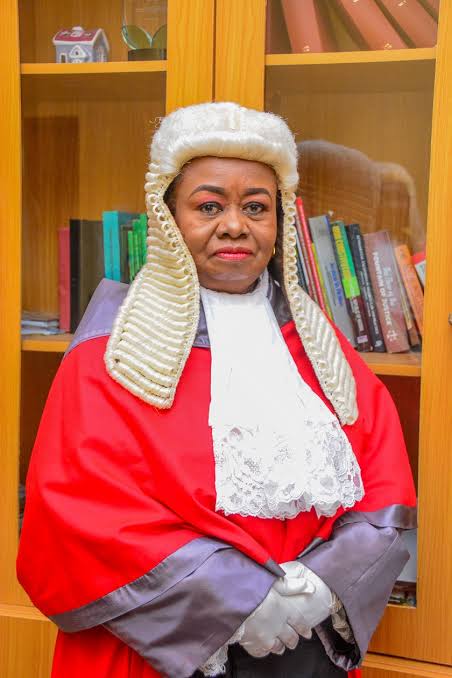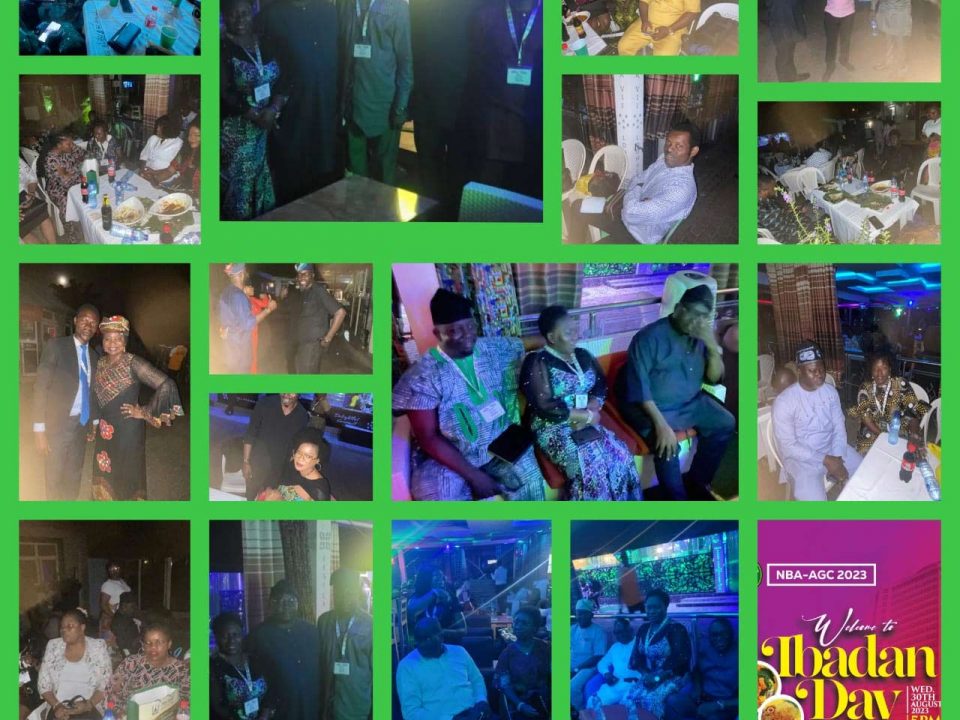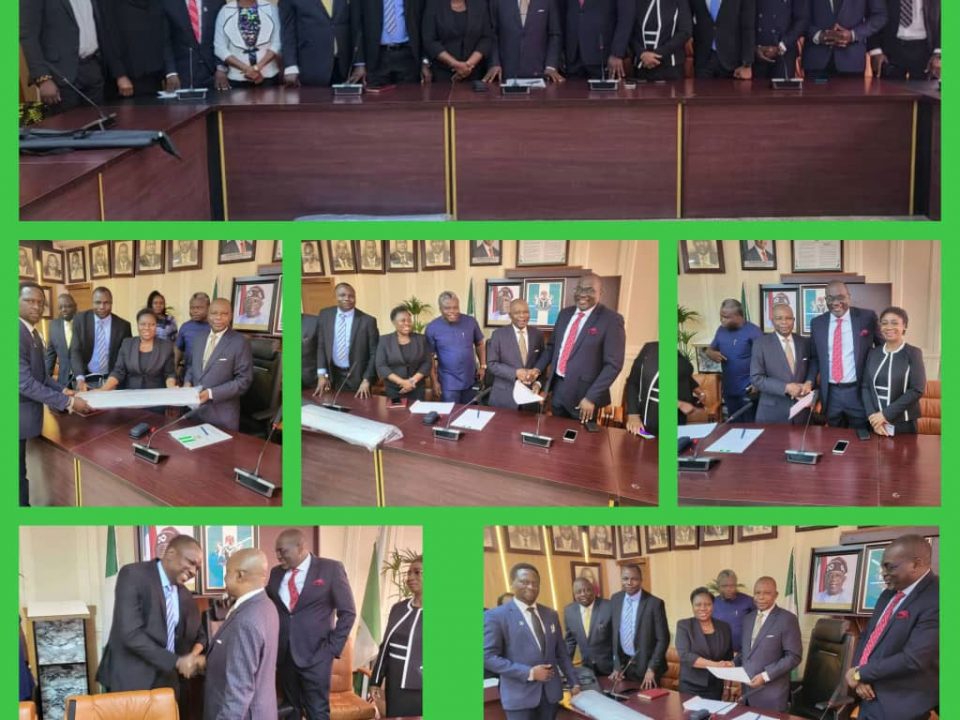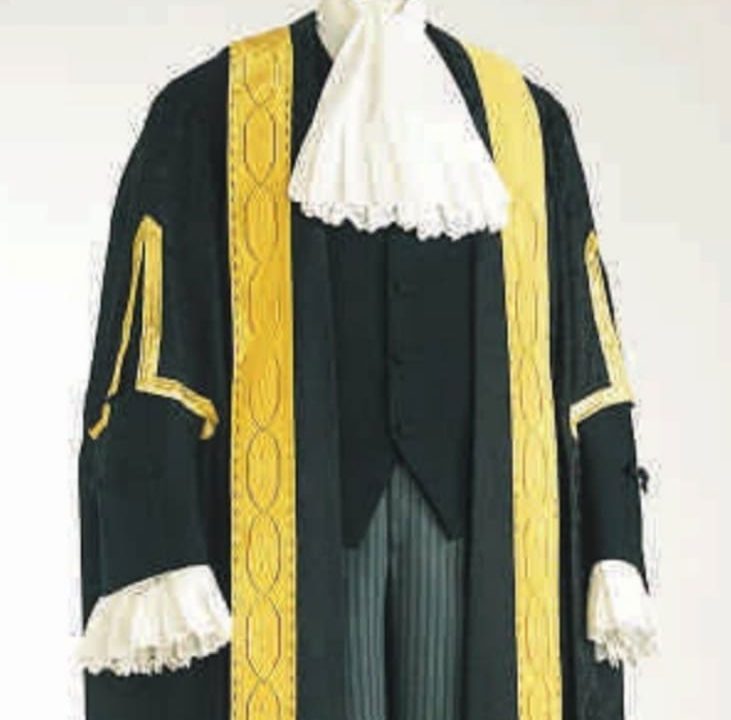VALEDICTORY COURT SESSION FOR HON. JUSTICE A.A. OLATUNJI–DANIEL ON 16TH MAY, 2023.

NBA IBADAN BRANCH PROFESSIONAL BAR DINNER
May 10, 2023Cause List (From May 22, 2023)
May 24, 2023

HON. Justice A.A. Olatunji-Daniel
The HON. Justice A.A. Olatunji-Daniel was born on 16th May, 1958, and hails from Ekiti State.
The Educational journey of the Hon. Justice A.A. Olatunji-Daniel began in 1969-1973 at the Adventist Grammar School Ede, Osun State, afterwards My Lord attended The Polytechnic Ibadan (1975 – 1976), University of Ife (1976-1981) and The Nigerian Law School in Lagos(1981- 1982).
My Lord served in many capacities, some of these were Research officer at the Nigerian Law Reform Commission (1982-1983), Pupil State Counsel Federal Ministry of Justice (1983), Principal Legal Officer Federal Ministry of Science & Technology, Lagos (1990-1993), Administrator/Legal Secretary, Bethel Ministry Ajah, Lagos (1994-1998).
His Lordship’s judicial appointments began as Chief Magistrate II Oyo State Judiciary (2001-2004), Chief Magistrate 1 – Oyo State Judiciary (2004-2006), Member Oyo State High Court, Ibadan Local Government Election Petition Tribunal (2004-2005), Deputy Chief Registrar – Oyo State Judiciary (2006-2013), Chief Registrar Oyo State Judiciary between May, 2013 to May, 2018 and finally Judge – Customary Court of Appeal, Oyo State (2018 – till date).
My Lord attended several profitable workshops from as early as 1989 till December 2022 while still effectively performing her judicial responsibility.
As a result of My Lord’s meritorious service, she received a letter of recommendation from the Head of Service of the Federation as the Liquidator of National Livestock Production Company, Kadis, and a letter of recommendation from the Judicial Service Commission in 2007.
My Lord possesses enviable attributes that have made his Lordship’s time on the bench a successful one such as taking special interest in Advocacy and Judgement Writing, ability to analyze issues, compilation and writing of reports and papers, great drafting skills, ability to maintain an interpersonal relations and communication and the ability to work and deliver under pressure.
These managerial attributes indeed were evidently used when My Lord was the Chief Registrar of the High Court. The Registry was effectively and efficiently manned. The staff were put on their toes, we did not witness incidence of shortage of files and tags at filing points as this has become the order of the day. Extortion by staff of the judiciary was at a very low ebb, cause lists were done timeously. Information management was also at its peak between the Judiciary and the Bar. My Lord wore the status of her office with dignity and efficiency.
Today, I leave the following five points as a challenge to the High Court and Customary Court of Appeal. If there is cooperation and synergy between both Courts; these are the dividends:
(a) An improved oversight of state departments: part of the responsibility of the judiciary is to act as a watchdog over the activities of the State.If both Courts are alive to their duties, the rising phenomenon of litigants taking their land disputes to the Courts of the Olubandan-in-Council and on the Radio will stop. The Customary Court of Appeal original Jurisdiction under Section 282(1) of the Constitution of the Federal Republic of Nigeria, 1999 (as amended) is both appellate and supervisory when the Courts are sleeping, institutions who have no business in the interpretation of Laws will definitely take-over.
(b) Effective execution of the power of judicial review: the power of judicial review means the power of the court to veto decisions and override rules that are ineffective, arbitrary or archaic. The cooperation and synergy between the courts will further improve the ways in which the power of judicial review is executed, its application and instance in which it is applied. For this, Courts need to be bold and ensure it stamps its authority by quick enforcement of its Orders.
(c) Effective service delivery: as stated earlier above that the primary subject of the judiciary is the people, without cooperation and synergy, effective service delivery is impossible and when there is no effective service delivery, society tends to be in uproar and political leaders become tyrants. Part of the effective service delivery is the adjudicating of cases, both the High court and Customary court of appeal acknowledging the jurisdiction of one another in related matters and rendering the needed assistance and guidance to ensure such matters are attended to lack of cooperation results in the usurping of the powers of one another which can result in maladministration.
(d) Pleasant atmosphere for legal practitioners: the effective functioning of the courts is also dependent on the legal practitioners who use the court on a daily basis, lack of the needed cooperation will prevent easy access to information that are important for the prosecution or pursuing of a legal cause. Where cooperation and synergy are established, the legal process becomes easier.
(e) Reduction in corruption: we are in the age of social media, nothing is practically hidden, hence, when the courts of law are not on good terms, it is easy to spot and that makes the judiciary vulnerable. The rise in corruption is only thwarted through the unity between the courts. According to Femi Odekunle (a member of the Presidential Advisory Committee against Corruption), he indicated that the judiciary is the hope of a country in a democracy therefore we rely on it to help in the fight against corruption, therefore, there is a need for cooperation.
Conclusion: I wish My Lord a happy birthday as she turns 65th today and also wish My Lord a happy retirement. Indeed rest is sweet after labour. May God lead My Lord to new grounds.
Folasade B. Aladeniyi (Mrs.)
NBA Ibadan Chairman



